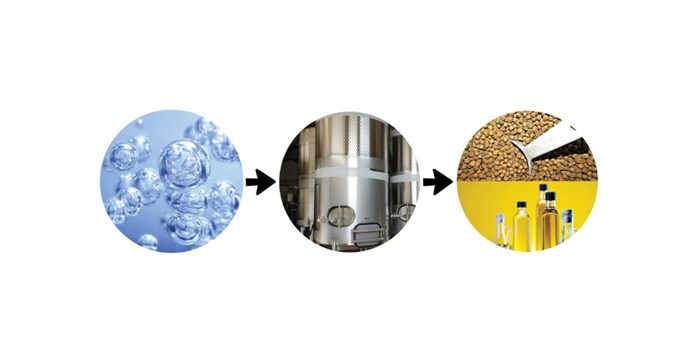
Top stories




ESG & Sustainability#AGES2026: How to back Africa's next-gen green and blue entrepreneurs
Maroefah Smith 3 hours


More news























Logistics & Transport
#Budget2026: Road freight logistics and what it means for consumers

Modern agriculture is guilty of emitting high volumes of greenhouse gases that contribute to climate change. It consumes vast amounts of resources, and contributes to global environmental degradation. Unfortunately, we're going to need more of it. An estimated population of 10-billion people by 2050 means we're going to have to increase food production by 70% in order to meet the growing demand. Current unsustainable practices aren't going to cut it if we are to keep the Earth comfortably habitable. Dyson believes the answer lies in CO2 recycling using micro-organisms she likes to call supercharged carbon recyclers.
Back in the 1960s-70s, explained Dyson in a recent TED Talk in Paris, NASA figured out how to use CO2 recycling to produce food with minimal inputs to feed astronauts travelling in space. Using micro-organisms and hydrogen from water they were able to create a virtuous carbon cycle that had the potential to sustain life in space.

"Astronauts would breathe out carbon dioxide, that carbon dioxide would then be captured by the microbes and converted into a nutritious, carbon-rich crop. The astronauts would then eat that carbon-rich crop and exhale the carbon out in the form of carbon dioxide, which would then be captured by the microbes, to create a nutritious crop, which then would be exhaled in the form of carbon dioxide by the astronauts. So in this way, a closed-loop carbon cycle is created," explained Dyson.
According to Dyson, these micro-organisms have the potential for a new type of crop cultivation that could help us address climate change, recycling carbon into valuable products. How so? These carbon-rich crops grow faster - we're looking at hours versus the months it usually takes in modern agriculture, crops can be grown during any season as they don't require sunlight, and they have greater ouput per area.
Potential products include protein-rich meal and alternatives to plant-based oils.
For more info, go to www.kiverdi.com.
